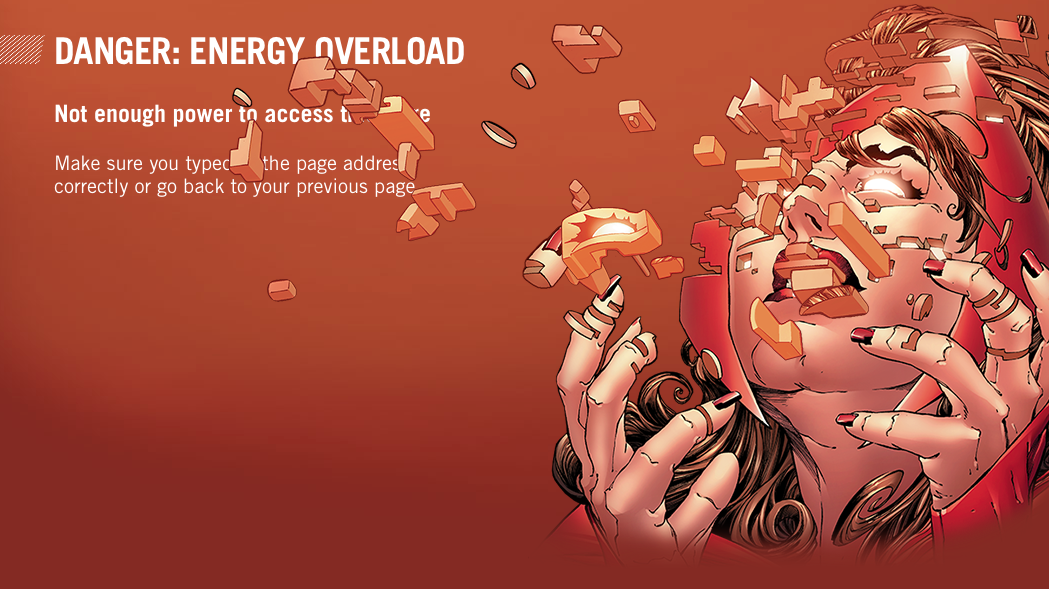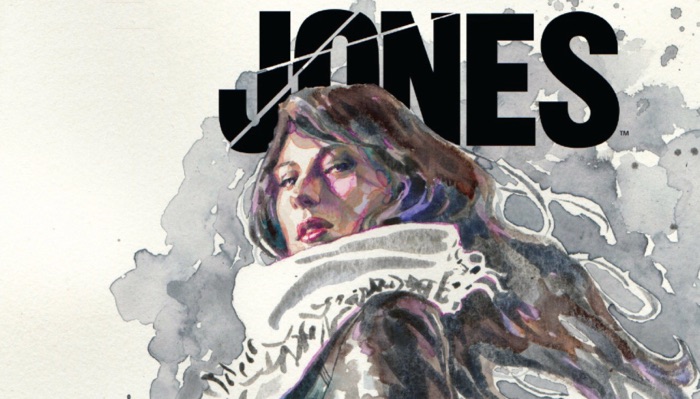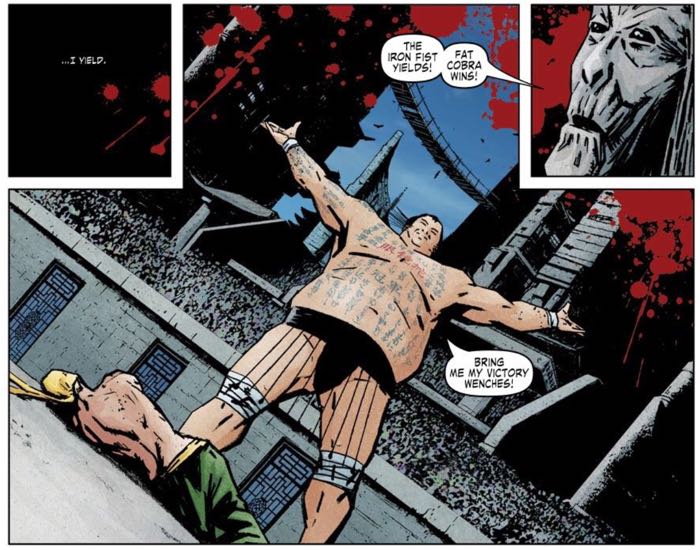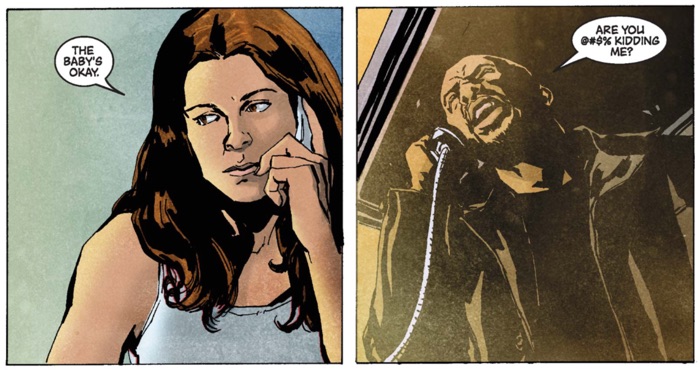Trump’s Supporters Talk Rebellion, Assassination at His Rallies →
This Boston Globe article is just tremendously depressing. So much work ahead of us to repair the damage this evil twisted man has wrought.
Danger: Energy Overload

There are some amazing 403 and 404 pages at Marvel.com.
We Need to Save the Internet from the Internet of Things →
Security expert Bruce Schneier:
Much has been written about how the IoT is wildly insecure. In fact, the software used to attack Krebs was simple and amateurish. What this attack demonstrates is that the economics of the IoT mean that it will remain insecure unless government steps in to fix the problem. This is a market failure that can’t get fixed on its own.
…
The market can’t fix this because neither the buyer nor the seller cares. Think of all the CCTV cameras and DVRs used in the attack against Brian Krebs. The owners of those devices don’t care. Their devices were cheap to buy, they still work, and they don’t even know Brian. The sellers of those devices don’t care: they’re now selling newer and better models, and the original buyers only cared about price and features. There is no market solution because the insecurity is what economists call an externality: it’s an effect of the purchasing decision that affects other people. Think of it kind of like invisible pollution.
Season Three of Black Mirror →
October 21st.
Already having nightmares from watching the trailer.
Trump Threatens to Sue Over ‘Nasty’ Campaign Ads →
You know who threatens to sue over negative campaign ads? Losers.
Other things losers do:
- raise unfounded concerns about voter fraud weeks before the election
- whine about nonpartisan debates
- repeatedly fire campaign leadership
- lack ability to articulate details of policy proposals
It’s a huge list, so I’ll stop there. But for some reason, people keep worrying he’s going to win which I guess is good to make sure he doesn’t.
Marvel’s Netflix Shows Avoid Superhero Sameness →

Abraham Riesman on the street-level heroes Marvel has paraded out on Netflix:
[The Marvel/Netflix] players appear in front of sensory backdrops that distinguish themselves deftly from one another. Close your eyes after watching the three series and picture the color schemes: Daredevil’s is all moonlight blacks, bruised reds, and fluorescent greens; Jessica traffics in royal purple, textured and dark leather, and the cold sunlight of wintertime; Luke is the gold of nostalgia, the crimson of a velvet rope. Keep your eyes closed and hear the echoes of the music in your head: That of the first show is the electronic thump of a video game; the second is the jazz of neo-noir; the exquisitely soundtracked third is an ecstatic symphony of soul, hip-hop, and live performances from living paragons of black excellence. Played at once, they would be a cacophony; individually, they find harmony with their thematic goals.
I’m in total agreement with Riesman, ever since Daredevil debuted, I’ve anticipated the Netflix shows with much more excitement than the Marvel Cinema Universe films.
What Riesman leaves out, but I suspect that he might be in agreement with, is that the source material being used for the Netflix shows is tighter. This street-level universe seems grounded in the genre-flecked work of Brian Michael Bendis (Daredevil, Alias, New Avengers) – and soon probably Matt Fraction and Ed Brubaker’s Immortal Iron Fist which features a simpatico attitude and artistic palette. The MCU suffers from trying to distill 60-70 years of ideas sprung from a myriad of writers into a relative handful of films. It shouldn’t be surprising that the strongest MCU entry, Captain America: The Winter Soldier grew out of an Ed Brubaker story. The tone and art style of Brubaker’s Winter Soldier arc comfortably fits within the noir-ish parameters of street-level. A slew of this style can be found under Marvel’s “Marvel Knights” imprint; a somewhat experimental and perhaps desperate line of titles Marvel created in 1998 to help weather their own bankruptcy.

You might say, with great constraint comes great possibility.
For enjoyment purposes only, a partial reading list of Street-Level Marvel and perhaps a reason to sign-up for Marvel Unlimited:
- Daredevil (1998; Bendis/Maleev into Brubaker/Lark)
- Alias (2001; Bendis/Gaydos)
- The Immortal Iron Fist (2006; Fraction/Brubaker/Aja)
- Sentry (2000; Jenkins/Lee)1
- NYX (2003; Quesada; 2005 Liu)
- Captain America, (2004; Brubaker/Epting), the Winter Soldier arc through Civil War
- Secret War (2004; Bendis/Dell’Otto)
- District X (2004; Hine/Various)2
- The Pulse (2004; Bendis/Various)
- New Avengers: Illuminati One-Shot (2006; Bendis/Maleev)3
- Spider-Woman (2009; Bendis/Maleev)
- Moon Knight (2011; Bendis/Maleev)

Much of Bendis’s New Avengers (2004) can probably be best read as taking The Avengers to street-level, but certainly the Luke Cage, and Luke and Jessica Jones, focused issues (like #22, #38, and #47) belong. There are more Marvel Knights books out there too – many of which I have yet to fully explore. But the above are all very good to great.4 The Fraction/Aja/Wu Hawkeye series would be at home here as well.
Anyways, my point besides touting Marvel Unlimited – see I was getting somewhere the whole time, I swear – is that Marvel has a truckload of stories which share the tone of the material used to make the Netflix series and I hope someone over there decides it’s better to make a Spider-Woman show or a Moon Knight show and not a stale-by-then for sure Daredevil Season 7.

So to conclude or at least wrap-up… I’ve been meaning to write this whole Marvel Street thing for a while and it should probably be written into a longer essay style blog post and not just undergrid a link list item, but let’s take a tip from Pop and Luke and move always forward and forward always, so no promises.
-
Not terribly street, but a Marvel Knights title which shares the aesthetic. ↩
-
More street than Sentry, it’s a mutant-based police procedural and another Marvel Knights title. If you enjoy this one probably tack-on the Madrox (2005) limited series and the first arc at least of X-Factor (2005) too. ↩
-
Erm. On the one hand, this is the opposite of street level – the committee self-appointed to save the world, on the other hand – it’s just a bunch of dudes yapping at a couple meetings. So.. ↩
-
Yeah, okay. I am being very kind to The Pulse. ↩
There Is No Golden Road to Unlimited Devotion Found on the Bottom of the Libertarian Ticket →
Bill Weld plans to use whatever modicum of attention he has as the Libertarian Vice Presidential nominee to attack Donald Trump, according to The Boston Globe.

While Weld insisted he still supports Johnson, he said he is now interested primarily in blocking Trump from winning the presidency and then potentially working with longtime Republican leaders such as Mitt Romney and Haley Barbour to create a new path for the party after the election.
Not that you can blame the guy for ditching Gary Johnson or the assorted hippies and gun nuts he met this summer. Lost causes need to feel good to feel right. And who wants to share blame for peeling a few hundred millennials off of Clinton in Florida or Pennsylvania to pave the road for Trump? Still, Weld must really be digging that new Bob Weir album.
Why Are Politicians So Obsessed with Manufacturing? →
A great article about the politics of labor from Binyamin Appelbaum in The New York Times:
This myopic focus on factory jobs distracts from another, simpler way to help working Americans: Improve the conditions of the work they actually do. Fast-food servers scrape by on minimum wage; contract workers are denied benefits; child-care providers have no paid leave to spend with their own children.
…
The enduring political focus on factory workers partly reflects the low profile of the new working class. Instead of white men who make stuff, the group is increasingly made up of minority women who serve people.... The old working class still controls the megaphone of the labor movement, in part because unions have struggled to organize service workers. Manufacturing was, logistically speaking, easier to organize. There were lots of workers at each factory, and most knew one another. Service work is more dispersed and done in smaller crews. Workers living in the same city and employed by the same retail chain, for example, would likely know only a handful of their compatriots. Fostering a sense of trust and shared purpose under these conditions is difficult.
Huitlacoche: Corn Truffle in the Streets, Corn Smut in the Sheets →

Rick Bayless, writes his Taco Tuesday newsletter:
In Mexico, huitlacoche, that mysterious looking mushroom that grows right out from the ear of corn, is pure luxury.
Here in the states, well, it’s considered a blemish at best, evil “corn smut” at worst.
Rick! Shhhh. Huitlacoche seems scarce, like something we would be better off with fewer people enjoying in order to tamp down on prices.
Image via GourmetSleuth.
Boys and Girls in America, 10th Anniversary (Already) →
Boys and Girls in America STILL have such a sad time together.
– Craig Finn